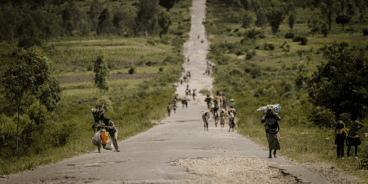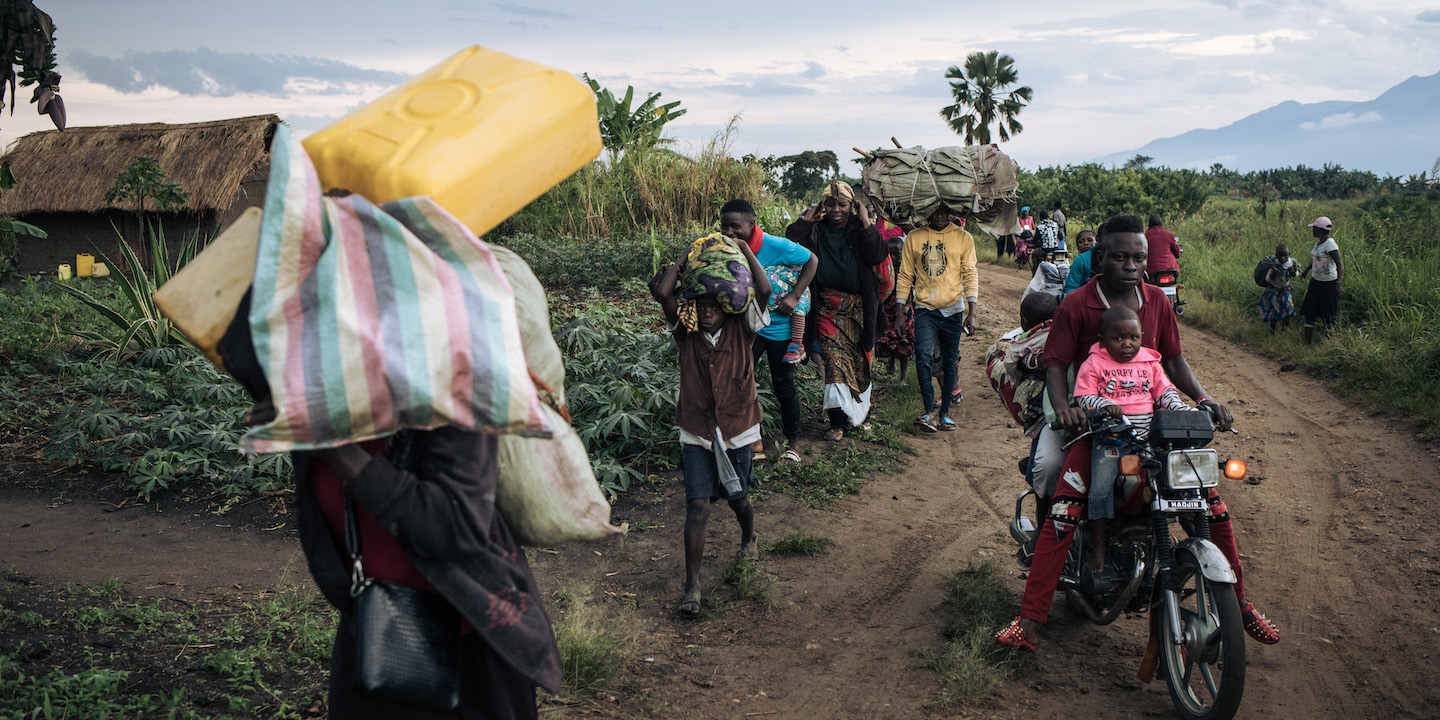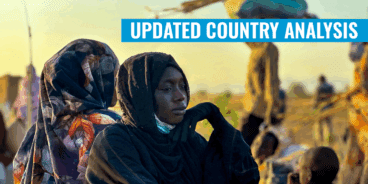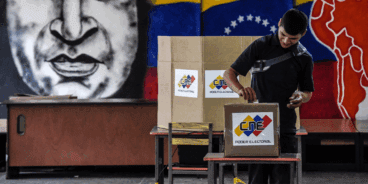

Atrocity Alert No. 191: Democratic Republic of the Congo, Cameroon, and International Day Against the Use of Child Soldiers
Atrocity Alert is a weekly publication by the Global Centre for the Responsibility to Protect highlighting situations where populations are at risk of, or are enduring, mass atrocity crimes.
Over 5 million displaced in DR Congo as violence continues in the east
Civilians in the Beni region of the Democratic Republic of the Congo (DRC) continue to flee ongoing atrocities perpetrated by the Allied Democratic Forces (ADF) and various armed militias. According to the UN Refugee Agency, more than 100,000 people have fled from violence in Beni over the past two months, bringing the total number of internally displaced persons (IDPs) in the DRC to more than 5.1 million, making it the largest displacement crisis in Africa. More than half of those displaced are children.
Attacks by the ADF and other armed groups on civilians in Beni increased following the launch of a government offensive on 30 October 2019. Since then the Kivu Security Project has documented that at least 393 civilians have been killed in massacres perpetrated by the ADF. Those fleeing the violence have reported mass killings conducted with machetes, as well as sexual violence and abductions perpetrated by the armed group.
The ADF was originally formed in Uganda – with support from several rebel factions and Islamist-inspired armed groups – and has operated along DRC’s border for more than 20 years. The group has a history of attacking villages in North Kivu and targeting civilians in retaliation for government offensives. The ADF is suspected of killing more than 1,000 civilians since October 2014 while perpetrating potential war crimes and crimes against humanity. The government’s latest military offensive was prompted by frequent ADF attacks on medical facilities involved in combatting an Ebola outbreak that has gripped the Beni region since August 2018.
The UN High Commissioner for Human Rights, Michelle Bachelet, visited the DRC during January and highlighted the abuses perpetrated by armed groups in Ituri, North Kivu and South Kivu provinces. High Commissioner Bachelet asserted that, “there has been a sort of normalization of atrocities and sexual violence, and an acceptance of poverty and deprivation, that has been devastating for the population.” She urged donors to increase their support, warning that there is “an increasingly fatalistic approach that this is just how it is, and how it will continue to be. This attitude is unjust, and it is wrong.”
The DRC security forces and the UN peacekeeping mission (MONUSCO) must keep civilian protection at the center of their joint campaign to eradicate the ADF. All attacks on civilians should be thoroughly investigated and any captured ADF fighters should be held accountable for atrocities perpetrated against the local population. While sustaining efforts to improve security and protect civilians in the eastern DRC, international donors should also support the urgent funding appeal to help millions of displaced civilians in IDP camps and host communities in the eastern provinces.
At least 22 people, including 14 children, massacred in Cameroon
On Friday, 14 February, at least 22 people, including 14 children and a pregnant woman, were killed following a clash between government forces and armed separatists in the Ngarbuh district of Ntumbo, in north-west Cameroon. Government forces were blamed for the massacre, but on 17 February the army denied the allegations, referring to the event as an “unfortunate accident” caused by a fuel explosion during a firefight with armed separatists and a “collateral result of security operations in the region.”
Deadly clashes between the security forces and armed separatists, as well as attacks on Anglophone villages, increased ahead of the country’s 9 February parliamentary and municipal elections. As a result, according to the UN Refugee Agency, more than 8,000 people have fled to Nigeria during the past two weeks. Since 2016, more than 530,000 people have also been internally displaced by the conflict in the disputed Angophone regions of north-west and south-west Cameroon.
The Office of the UN High Commissioner for Human Rights described the Ngarbuh massacre as “a shocking episode” in the ongoing conflict. In a statement on Monday 17 February, UN Secretary-General Antonio Guterres called upon the government “to conduct an investigation and to ensure that those responsible are held accountable.”
There is no viable military solution to the ongoing conflict in the Anglophone regions of Cameroon. Government forces and armed separatists must immediately end all extrajudicial killings of unarmed civilians and ensure that the human rights of all Cameroonians are equally protected, regardless of language, cultural identity or political affiliation. The Government should accept the UN Secretary-General’s offer to help mediate an end to the deadly conflict.
Crimes against children condemned on International Day Against the Use of Child Soldiers
Last Wednesday, 12 February, was the International Day Against the Use of Child Soldiers, or “Red Hand Day.” Recruitment and use of children is one of the UN’s six “grave violations” against children and, according to the Rome Statute, enlisting, conscripting and using children under the age of 15 in an armed conflict is a war crime. Despite some progress in recent years, tens of thousands of vulnerable children are still used in armed conflicts around the world where they are often exposed to various human rights violations, including killing, maiming, sexual violence and abduction.
The UN Secretary-General’s 2019 report on children and armed conflict documented more than 6,700 new cases of recruitment and use of children during 2018, including in Afghanistan, Central African Republic, Democratic Republic of the Congo, Myanmar, South Sudan and Yemen. The countries with the highest number of new cases of child recruitment were Somalia (2,300) and Nigeria (1,947). In Syria the UN verified the recruitment and use of more than 800 children, 94 percent of whom were used in combat roles. Although more than 13,600 children were released by parties to conflicts during the year, comprehensive reintegration of former child soldiers remains a huge challenge.
Coinciding with the International Day Against the Use of Child Soldiers, the UN Security Council held a briefing on children and armed conflict. UN Secretary-General Antonio Guterres highlighted the plight of the estimated 250 million children living in countries affected by conflict and asserted that “children may be subjected to horrific abuses in war zones,” which “cause lasting damage to children themselves, and to their communities and societies. They can feed the grievances and frustrations that lead to extremism, creating a vicious circle of tension and violence.” The Secretary-General also launched the UN’s “Practical guidance for mediators to protect children in situations of armed conflict.”
All UN member states should adopt and implement the Optional Protocol to the Convention on the Rights of the Child on the Involvement of Children in Armed Conflict. States should also endorse the Vancouver Principles on Peacekeeping and the Prevention of the Recruitment and Use of Child Soldiers. The international community should relentlessly pursue those who use child soldiers and commit crimes against children, including via the International Criminal Court.
Related Content


Populations at Risk, November 2025
